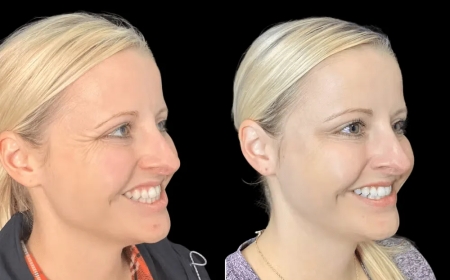Navigating the Capella Assessment Landscape: A Guide to Academic Mastery

Capella University offers a transformative educational experience built aroundcompetency-based learning. At the heart of this model are Capella Assessments, which serve as the primary tools to evaluate student progress. Unlike traditional universities where exams and rote memorization often dominate, Capella uses real-world scenarios and applied knowledge assessments to verify a students ability to perform in their chosen Capella Flexpath Assessment. This approach not only enhances practical learning but also aligns academic achievement with professional success.
This article will provide a comprehensive guide to understanding, preparing for, and excelling in Capella Assessmentswhether you're enrolled in GuidedPath or FlexPath.
Understanding Capella Assessments: What Makes Them Unique?
Capella Assessments are designed to evaluate students based on demonstrated competencies. Rather than rely on multiple-choice tests, students submit assignments that reflect their knowledge and skills in action. This may include written reports, strategic plans, analytical essays, recorded presentations, or scenario-based problem solving.
These assessments reflect tasks you might perform in a real job setting. For example, a nursing student might complete a care coordination plan, while an MBA student might write a market analysis report. Every assessment is tied directly to program-specific learning outcomes, ensuring a targeted and practical educational experience.
GuidedPath vs. FlexPath: Two Routes, One Destination
Capella offers two main formats, each with its own rhythm and assessment delivery.
GuidedPath
This format follows a structured calendar. Students attend courses with weekly deadlines, discussion boards, and instructor-facilitated learning. Assessments are typically due at the end of each unit or module and follow a set pace. This model is ideal for students who prefer a more traditional classroom experience with built-in time management support.
FlexPath
FlexPath offers a self-paced, direct-assessment model. There are no fixed deadlines. Instead, students submit assessments when they are ready. Progression is based entirely on masteryonce an assessment is passed, students move forward. This format is well-suited for self-directed learners who want to progress quickly or balance studies with full-time work or family obligations.
While the structure differs, both formats are held to the same academic rigor and assessment standards.
The Role of Rubrics in Assessment Success
Each Capella Assessment is accompanied by a detailed rubric, which outlines exactly what is required to meet each level of performance. Rubrics define the criteria used by faculty to evaluate submissions and are broken down into categories such as:
-
Context and Purpose
-
Content Development
-
Evidence and Support
-
Organization
-
APA Style and Grammar
Using Rubrics Effectively
-
Read the rubric carefully before starting the assessment. It gives a clear roadmap of expectations.
-
Organize your work to match the structure of the rubric.
-
Self-assess your submission nurs fpx 4045 assessment 1 each rubric item before submission.
-
Aim for "distinguished" performance in each criterion to ensure the best outcome.
Mastering rubric use is one of the most important habits for success at Capella.
Feedback and Revision: A Growth-Oriented Process
One of the hallmarks of Capellas assessment model is the option for revision. If an assessment doesnt meet all requirements, students are encouraged to revise and resubmit based on faculty feedback.
Embracing the Revision Process
-
View feedback as a tool for skill improvement, not criticism.
-
Carefully read the instructors comments to understand what needs to change.
-
Address all areas identified and review the rubric again before resubmitting.
-
Reach out to your instructor or academic coach if clarification is needed.
This process mirrors real-life job performance where refinement and adaptation are essential.
Academic Integrity and Originality
Capella places high value on academic integrity. Every assessment must reflect your own thinking and writing. Using proper citations, paraphrasing appropriately, and avoiding plagiarism are all critical.
Tips for Maintaining Integrity
-
Use Capellas APA Style resources to cite properly.
-
Leverage tools like Turnitin (often integrated in courses) to check originality.
-
Avoid using unauthorized assessment examples or AI-generated content without revision and understanding.
Demonstrating integrity strengthens both your academic standing and professional credibility.
Strategies for Successful Assessment Completion
To thrive in Capellas assessment model, students should develop consistent habits and use the available tools.
1. Plan Ahead
Start early and break assessments into manageable parts. Even in FlexPath, planning prevents last-minute stress.
2. Use Capella Resources
Capella provides extensive support:
-
The Writing Center offers help with grammar, organization, and citations.
-
Tutoring and academic coaching help with goal setting and time management.
-
Library databases provide access to peer-reviewed research and sources.
3. Connect Learning to Career Goals
Whenever possible, relate your assessment topics to your current job or career aspirations. This not only makes your submissions stronger but increases their relevance and value to you.
The Capella Assessment Advantage
Capellas assessment system prepares students not just for graduation, but for real-world performance. By focusing on competency demonstration, the university equips learners with the tools they need to thrive in their industries.
These assessments build confidence, demonstrate readiness, and produce tangible evidence of your expertise. They arent just assignmentstheyre stepping stones to advancement and achievement.
Final Thoughts
Capella Assessments represent more than an academic requirementthey are a blueprint for practical, applied learning. Whether you are navigating GuidedPaths structure or enjoying the flexibility of nurs fpx 4905 assessment 5, mastering the art of assessment at Capella is critical to your academic journey.
By understanding the expectations, embracing feedback, and applying your skills in realistic contexts, you not only meet educational benchmarksyou grow as a thinker, professional, and leader.
More Articles:
Beyond the Grades: Unpacking the True Value of Capella Assessments
Capella Assessments: A Pathway to Practical Learning and Professional Mastery
Capella Assessments: A Practical Approach to Measurable Learning Outcomes






































